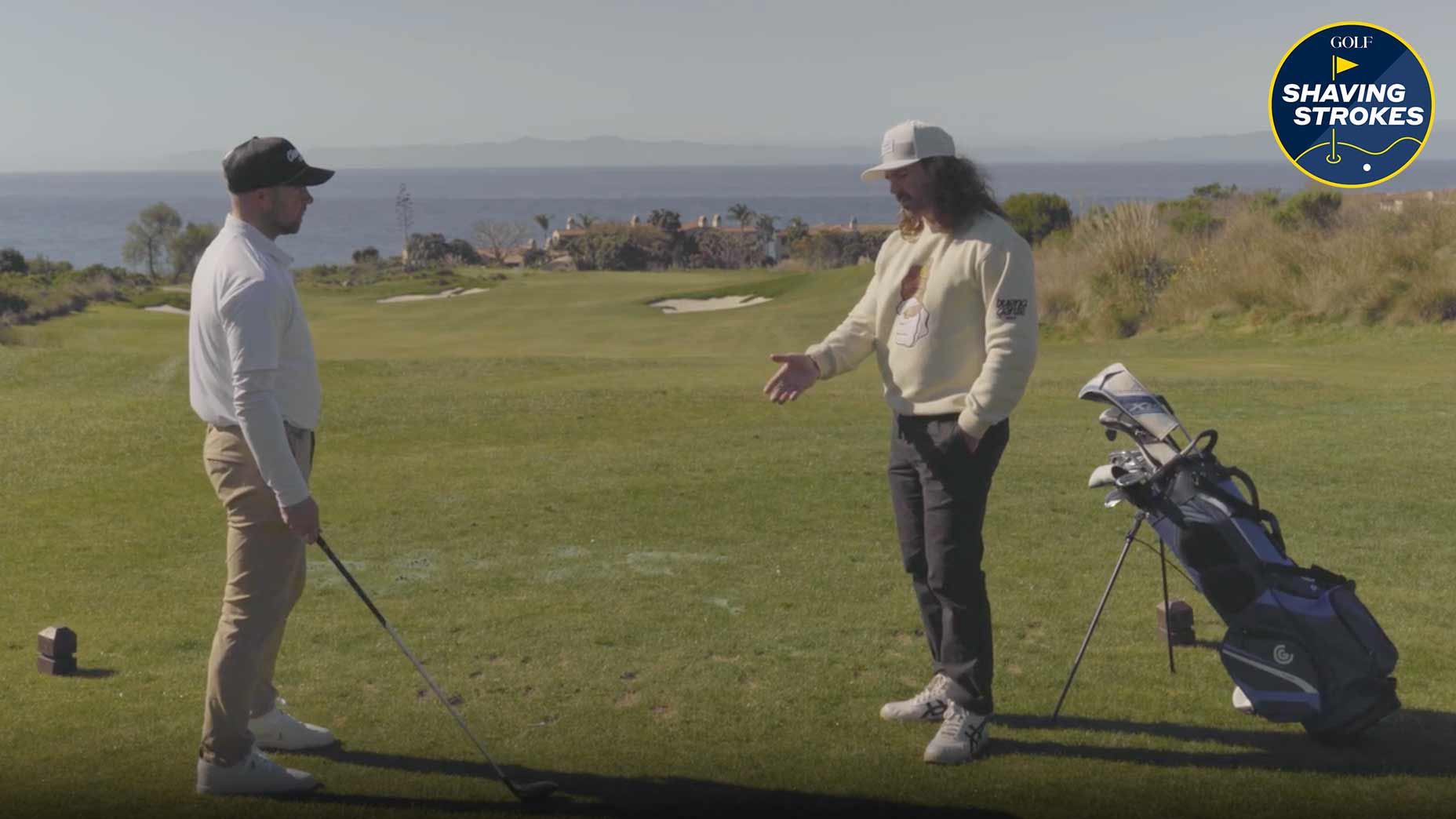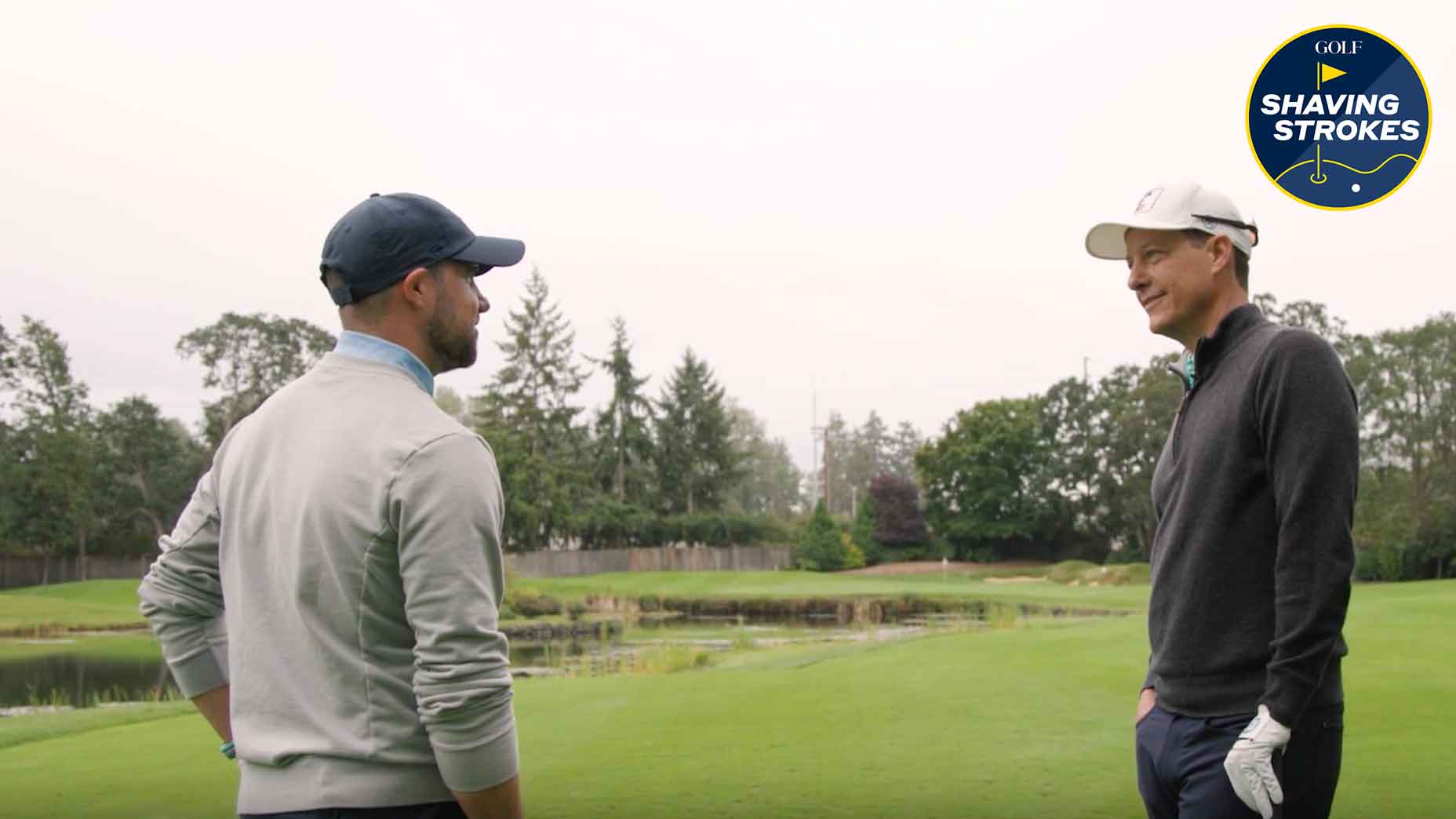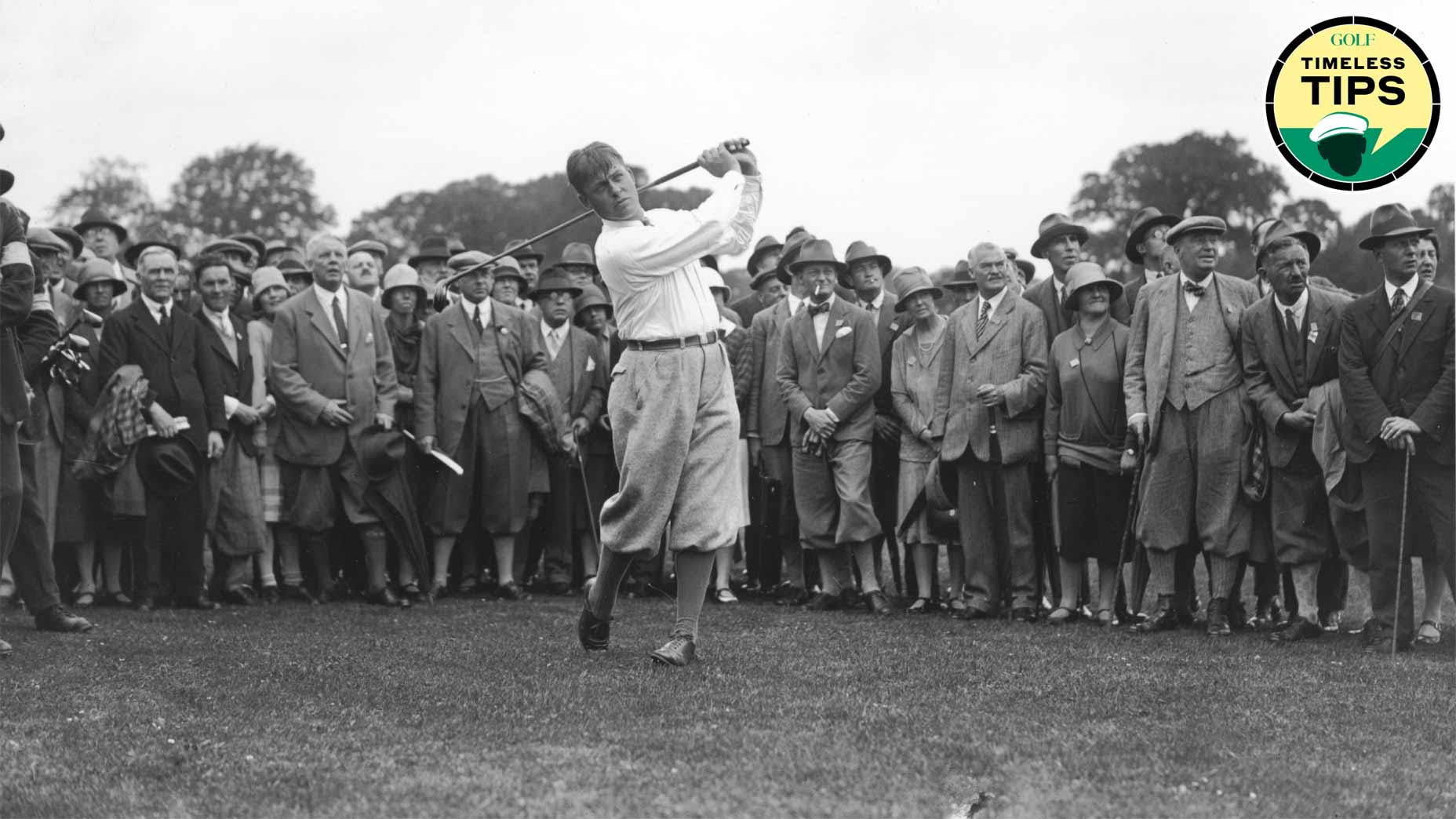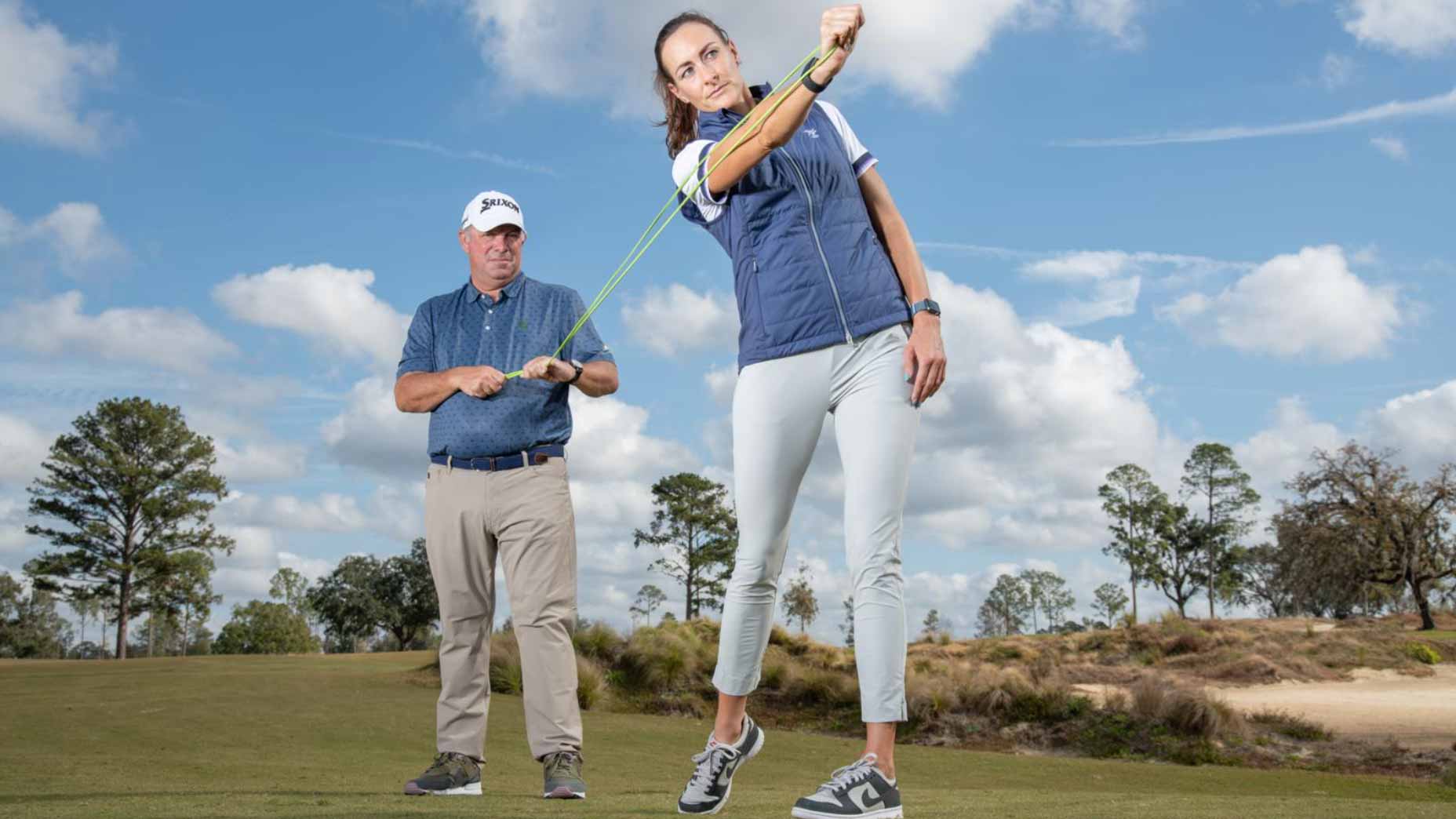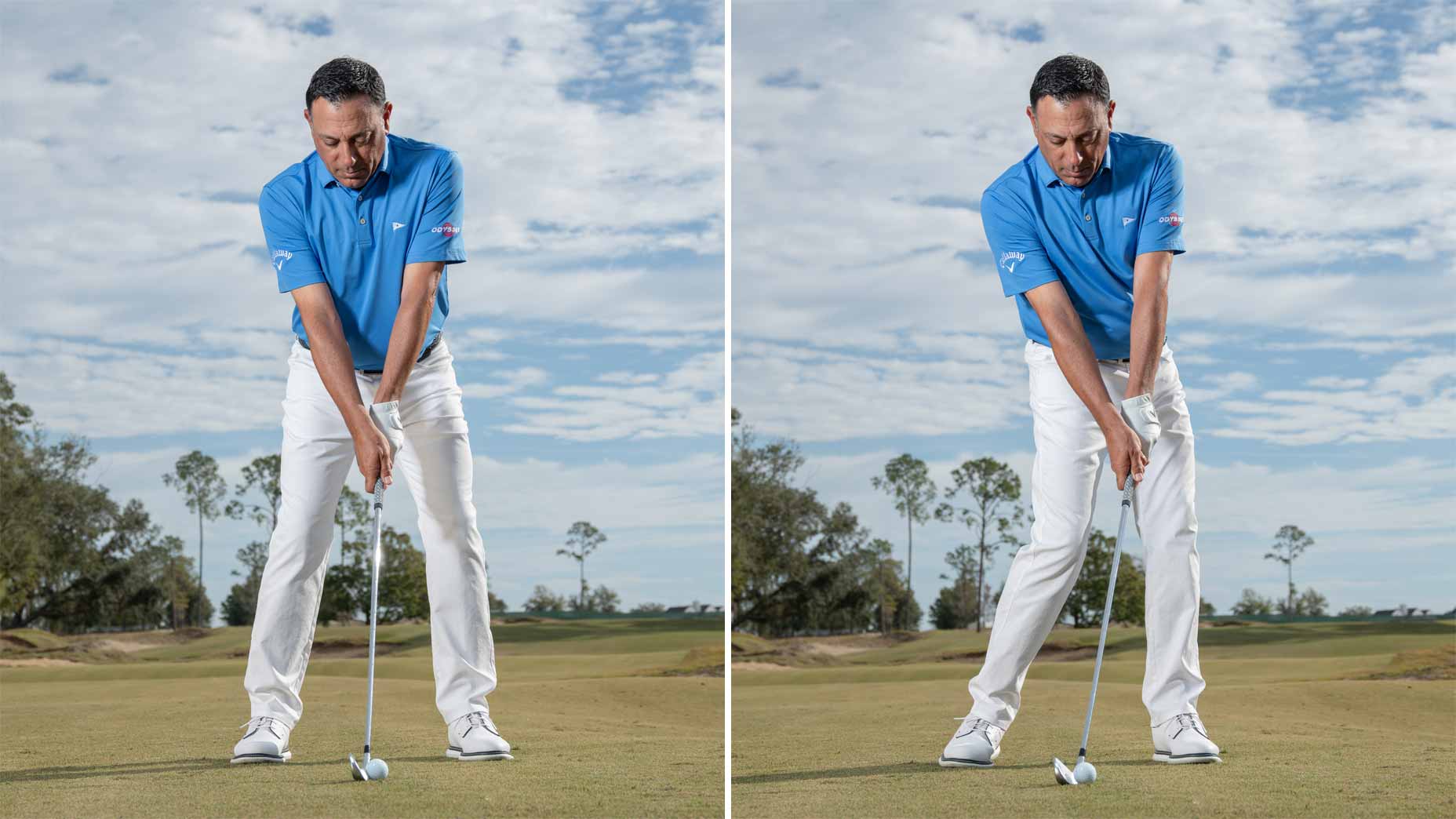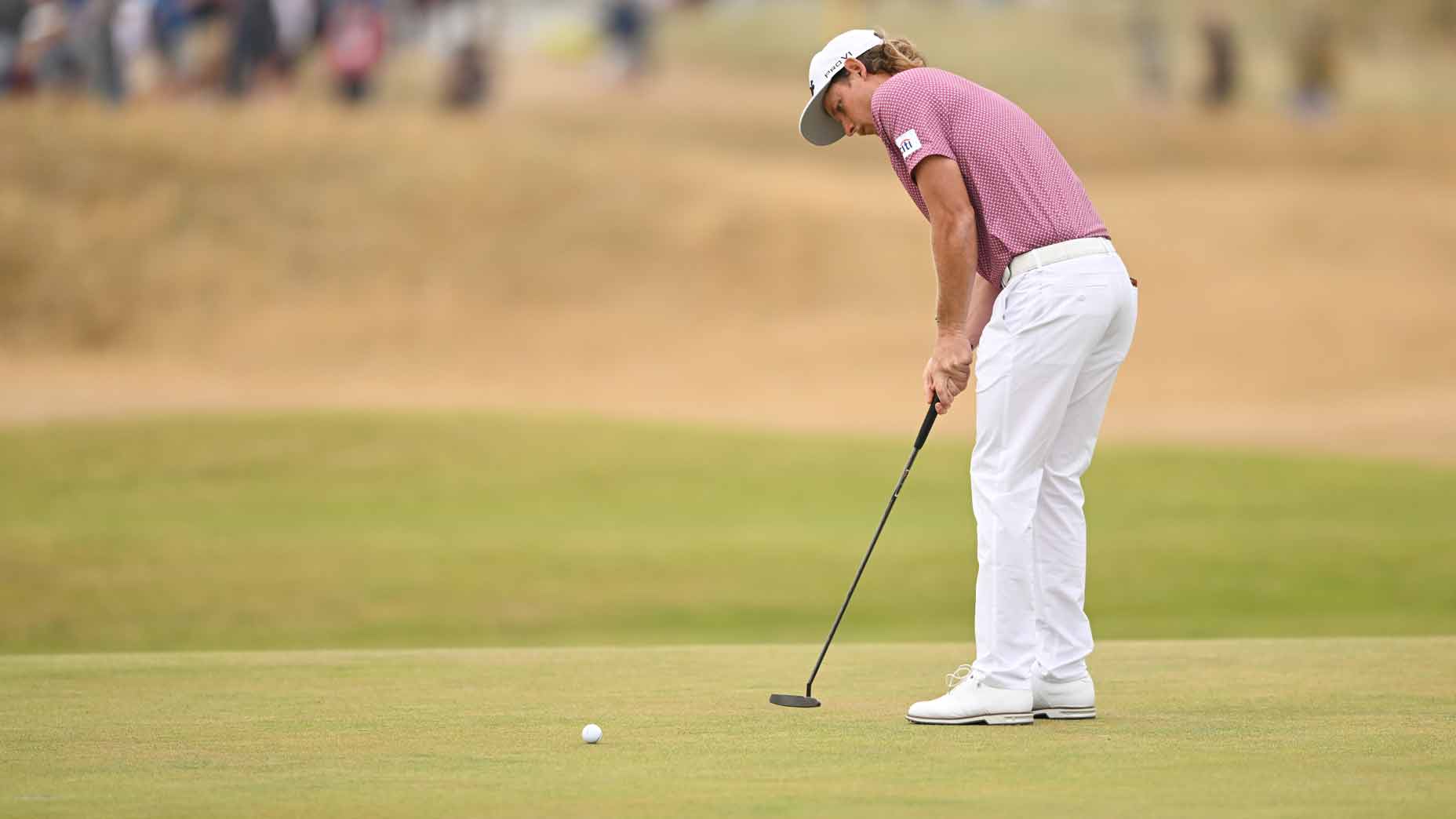Welcome to Shaving Strokes, a GOLF.com series in which we’re sharing improvements, learnings and takeaways from amateur golfers just like you — including some of the speed bumps and challenges they faced along the way.
Ed. Note: This article was published in partnership with Cleveland/Srixon.
Did you know that the PGA Tour scoring average on par-3 holes is 3.06? Considering most amateur golfers assume par-3s should be much easier than that, it might come as a surprise.
Now here’s some real talk: Most amateurs don’t come close to sniffing that score on a par-3 — especially when it’s a longer one that adds another level of difficulty to the equation. But just because you’re standing on the tee box of a long par-3 doesn’t mean you just need to accept bogey (or worse) as the outcome. In fact, all you have to do is rethink your club choice.
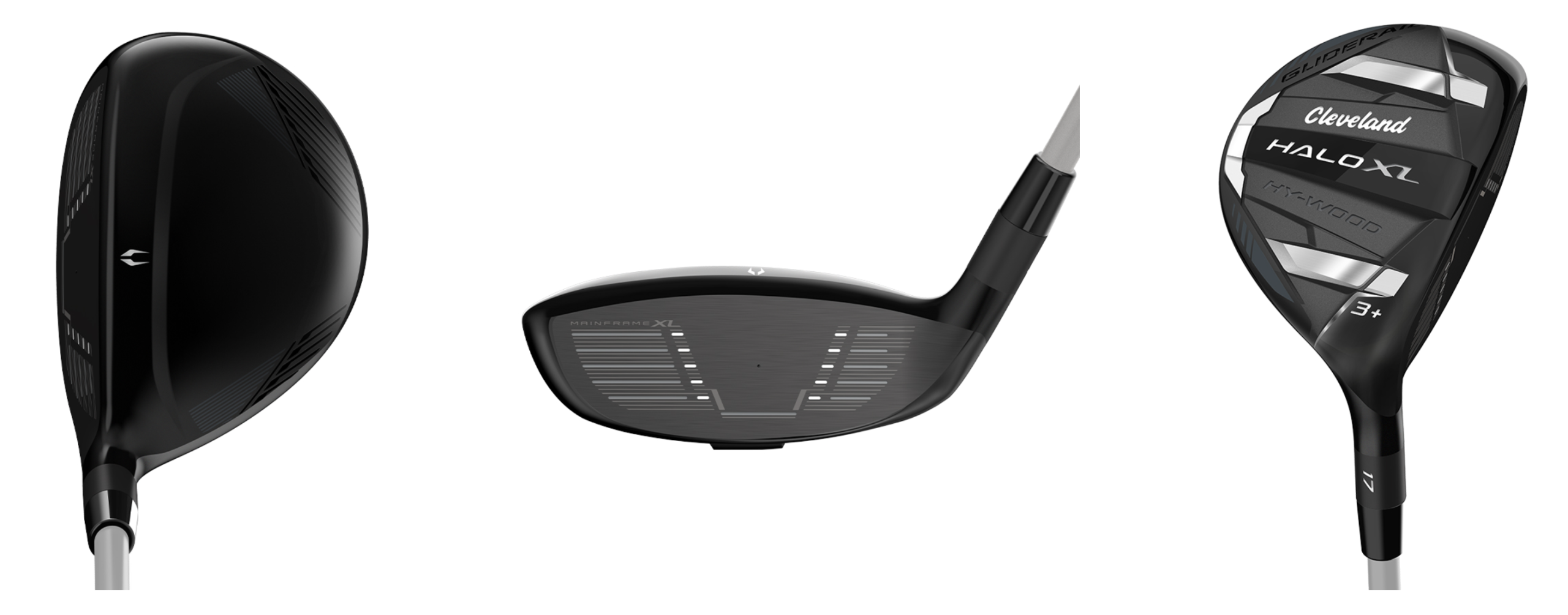
Cleveland Launcher Halo XL Custom Hy-Wood
Ditch your 4- or 5-iron for a Hy-wood instead
In a recent lesson with golf instructor Jake Hutt, the two of us visited Terranea Resort in Rancho Palos Verdes — a stunning par-3 course with incredible views of the Pacific Ocean. But it also happens to be one of the trickiest short courses I’ve ever played, with windy conditions often making any shot a difficult one.
While Terranea has a few holes that allow you to really “go for it,” No. 8 requires you to hit an excellent tee shot — but you need to actually get it there.
As Hutt describes in the video above, “this is about a 200-yard, par-3 hole. It’s terrifying!”
So what can a mid-handicapper like myself do to give myself a real chance at birdie? Use the right club!
In circumstances like this, I often choose a 4- or 5-iron, hoping I can hit that perfect shot that leads to my ball sitting within 10 feet of the pin. But that’s a lot to ask for, so Hutt suggests switching to a Cleveland Launcher Halo XL Hy-Wood on longer par-3 holes like this.
“So we’re going to take this 4-iron and we’re going to throw it in the trash,” Hutt says. “Instead, I’m going to give you this Cleveland Hy-Wood.”
Prior to hitting my shot, I ask Hutt if there’s anything in my setup or swing motion that I need to reconsider now that I’m using a stronger club instead of an iron.
“You can put this a little further forward in your stance than you would an iron, which will help get the ball up in the air, spin it a little bit more, and make everything a little bit easier,” he says.
As I address the ball, I feel more confident about my club choice — mainly because I now know I have the distance to at least hit the green, so I don’t need to overswing to get it there. The result of the shot? A high draw that hits the right side of the green and uses the slope to funnel toward the pin.
I challenged a Tour pro on a tricky par-3. Here’s how it wentBy: Nick Dimengo
In other words: Chefs kiss.
While I hit my ball a tiny bit thin, by using a Hy-Wood instead of a low-iron, I had more forgiveness when it came to my ball-striking thanks to the bigger face.
“You’re going to get extra ball speed [with the Hy-Wood], a little more pop off the face, and will get the ball up in the air and spinning it a little bit more to hold the green,” Hutt says.
So instead of being in-between clubs and hoping you hit the perfect shot, try using a Hy-Wood to make things easier on yourself.
“No one needs a 4-iron, no one needs a 5-iron, what they do need is a Cleveland Hy-Wood,” Hutt says.
